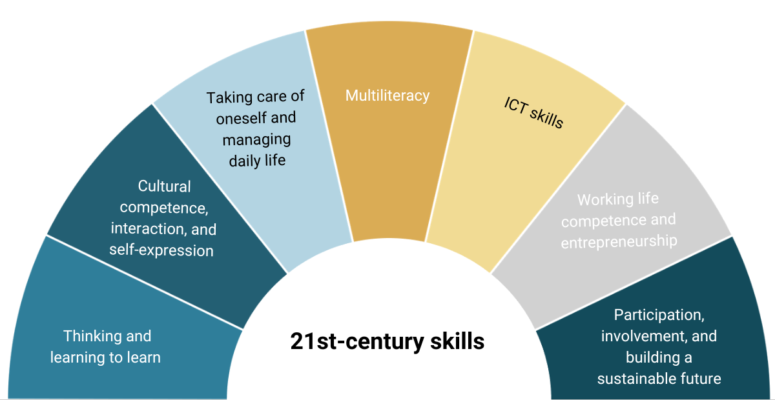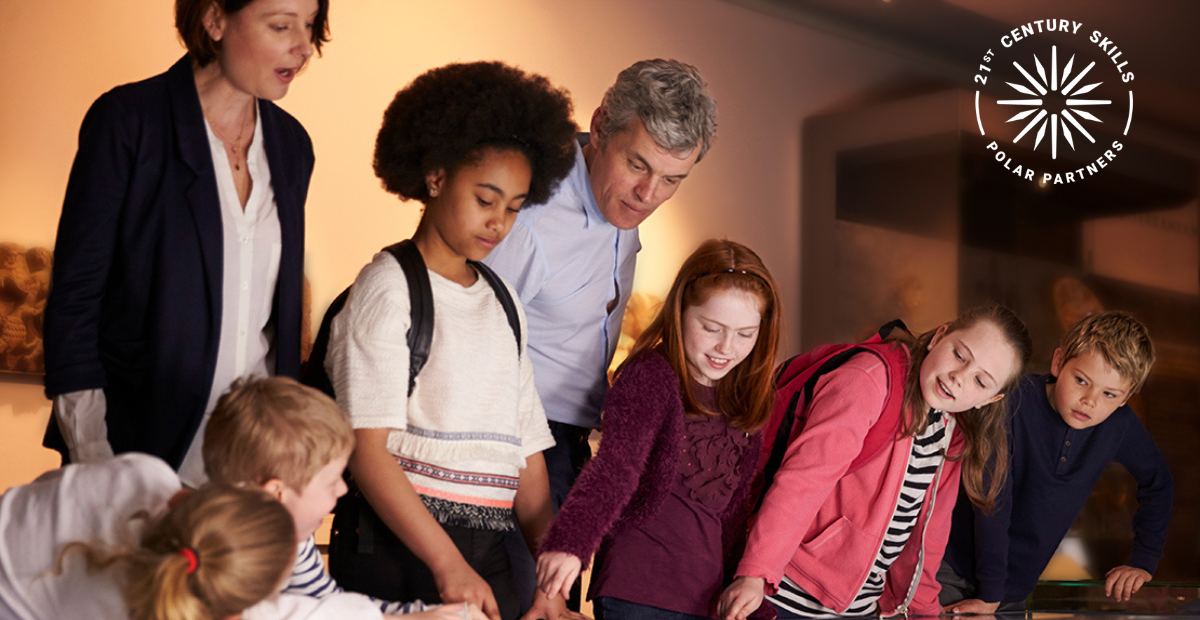A core principle of Finnish education model is to support students’ growth as individuals, enhance skills necessary for participating in tomorrow’s democratic society and make sustainable choices regardless of your age. This requires knowledge and competences that crosses boundaries and connects different fields of knowledge.
Finnish National Core Curriculum for Basic Education (2014) contains objectives, core content and evaluation criteria of all school subjects. It also introduces seven transversal competencies integrated into all subjects and school activities. These so-called 21st-century skills are tools that can be universally applied to enhance ways of thinking, learning, working and living in the world.
Our blog series will unlock the secrets of 21st century skills:

21st century skills – 6. Working life competence and entrepreneurship
Entrepreneurship is a way of thinking from a broader perspective and learning from experimentation and failures.
Schools are in an essential role to supply students with the skills they need in their future working life. However, the environment is changing rapidly and the task of predicting the exact set of skills required in the future is nearly impossible. This is a competence that needs support from outside of the school – from companies, organisations, parents and the local community.
This competence is important in developing a students’ competence for being a understanding the practices of working life, roles of an employer and employee, mastering small talk and social interaction in a work setting, as well as being able to adapt to new environments and challenges. Promoting positive attitudes towards work and fostering an entrepreneurial spirit in students is key to learning meaningful working life skills.
Soft skills form a solid basis for future development
To function in the working life of the future, students should acquire soft skills such as adaptivity and resilience, communication and collaboration, time management, and lifelong learning. Comprehensive soft skills form a solid base for further learning, growth, and development. With a good soft skills for example in communication (asking questions / asking help) and self-leadership (how to adapt new information / how to organise your time between different tasks) all new processes and knowledge can be adapted more easily.
Entrepreneurship is often perceived as learning how to establish a company, but it should be understood as entrepreneurial attitude, spirit, or a way of thinking – a flexible, adaptive, quick-thinking mindset that allows one to make mistakes and learn from them. It’s not all about how to be an entrepreneur, it’s more about supporting students to recognize their strengths and weaknesses and develop themselves toward their future goals. Perhaps they can create a job that did not exist before.
Learning from real-world experiences
To implement these skills in the education environment, teachers will probably need support in providing working life connections to students. Guest lecturers from interesting companies, interviewing own parent or relatives and field trips to working life events or fairs can help students understand what does working life actually look like and what kind of work even exists. It is important to share information and examples of what types of skills play key roles in building a career and to start building their own path in working life.

Another way of rehearse working life skills in practice is learn by doing: students plan and organised a project from the beginning to the end, join to a miniature society for one day (Me and My city) or start a imaginary (or even real) start-up company together (Junior Achievement program). The goal of these exercises is to experience the planning part, but also the part of implementation, real-life practice. When experiencing a failure or success, it will leave a long-lasting memory for the future. Students will learn how to design and manage a project, deepen their understanding in various roles of a team and how to give and receive feedback. Students can plan the project timeline and budget, examine different value propositions, choose target customers and take responsibility of their own work.
Working life and entrepreneurship competencies develop naturally when students are offered opportunities for practicing these skills in a school environment. Building social connections, adaptivity, and resilience, gaining new experiences, and learning about different career paths prepare youth for tomorrow’s work and spark their imagination for creating their own working life.
This article is part of our series about 21st-century skills, a crucial theme in the future of education. See other parts of this series below:
- Part 1: Thinking and learning to learn
- Part 2: Cultural competence, interaction, and self-expression
- Part 3: Taking care of oneself and managing daily life
- Part 4: Multiliteracy
- Part 5: ICT skills
- Part 6: Working life competence and entrepreneurship
- Part 7: Participation, involvement, and building a sustainable future
